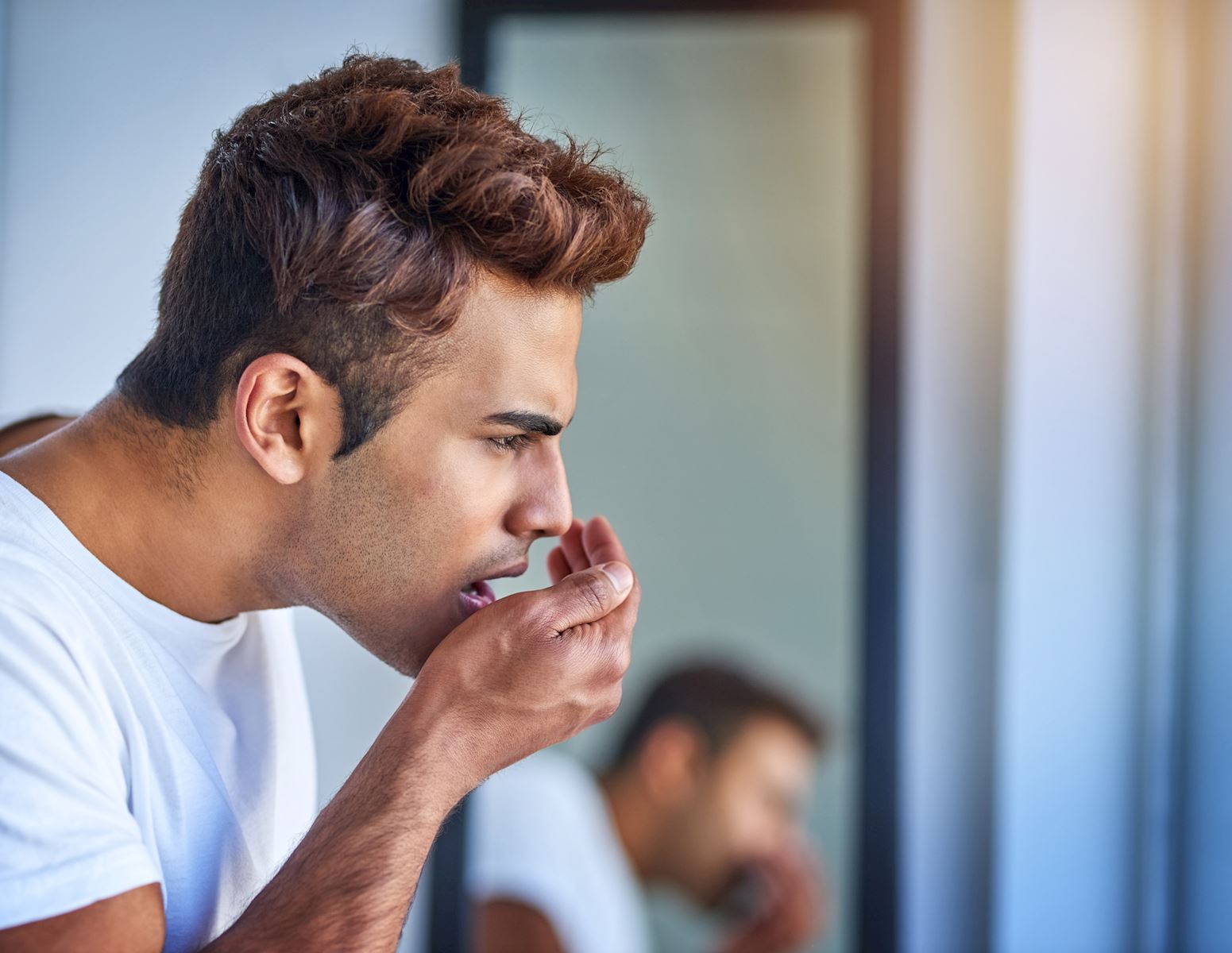What Is Halitosis?
posted
by Dr. Beau Beecher, DDS on 2/10/2022
in
General

We’ve all done it, a quick breath check to make sure we don’t have embarrassing bad breath, aka, halitosis. We know to avoid certain foods like garlic or onions to make sure our breath isn’t smelly. Most of the time, after you brush your teeth, or eat mints, or rinse with mouthwash, bad breath goes away. Other people aren’t so lucky. It’s reported nearly 60 million people suffer from chronic halitosis in the United States.
What Is Halitosis?
Many of us use the terms halitosis and bad breath interchangeably. But there’s an important distinction to remember. Bad breath is temporary, caused by inadequate brushing, morning breath, or food debris left on teeth. Halitosis is long-term, defined by Johns Hopkins Medicine as a chronic oral health problem where the main symptom is bad smelling breath
How Is Halitosis Diagnosed?
Self diagnosing halitosis is hard, but your dentist can easily diagnose this during a dental exam. Your dentist will rate the smell from your mouth and nose on an odor scale. He or she will check if you have any infections and advise treatment accordingly.
4 Common Causes of Halitosis
We often blame the food we eat for our bad breath, but for halitosis sufferers, there are more serious underlying causes than onions or garlic. Here are some of the most common causes of halitosis.
Natural Bacteria
Your mouth is home to hundreds of natural bacteria, called oral microflora. After you eat, these bacteria feed on the food left behind in your teeth, gums, and tongue. The bacteria then produce waste known as volatile sulfur compounds which is the bad breath smell you experience.
Cavities and Gum Disease
Cavities (tooth decay) and gum disease (infected tissues) allow bad breath bacteria to hide in hard-to-clean places in your mouth. The longer bacteria stay, the more time they have to create a stinky smell.
Dry Mouth
Saliva is important for your oral health because it constantly rinses and removes bacteria from your mouth. However, if you have dry mouth, a common side effect of medications, gland issues, or breathing through your mouth, your body will produce less saliva. This keeps more bacteria rotting in your mouth for longer.
Mouth, Nose, and Throat Infections
When you get sick or experience infections, your body produces thicker, excess mucus to help fight the bacteria. When the excess mucus trickles down from your nose to your throat this is known as post-nasal drip. It’s often cited as a significant cause of bad breath. It gives bacteria a surplus of mucus to feed on and then emits the bad breath smell.
How To Treat Halitosis
Being diagnosed with halitosis can be uncomfortable. Thankfully, there’s a wide array of treatment options to help you get rid of halitosis. You can try preventative, at-home treatments or seek professional treatment from your dentist.
At-Home Treatments
If you’re constantly concerned about halitosis, it can add a lot of stress to your daily life. Fortunately, there are many preventive measures you can take to avoid embarrassing halitosis from the comfort of home.
Establish a daily dental routine:
- Brush your teeth with fluoride toothpaste two times a day (for at least two mins.)
- Floss between your teeth at least once a day
- Clean your tongue, cheeks, and the roof of your mouth
- Clean your dentures or other mouth gear before putting them back in your mouth
Increase your saliva production:
- Drink 8 or more glasses of water a day
- Cut back on caffeine and sugary foods
Professional Treatments
In addition to sticking to a daily cleaning routine, it’s also important to visit your dentist regularly. Your dentist will do a more thorough cleaning to help avoid cavities. If you are suffering from long-term halitosis, discuss with your dentist so they can examine, help find the cause, and diagnose an appropriate treatment. Depending on the cause of your halitosis, your dentist may recommend the following treatments
For halitosis caused by cavities & plaque:
- Use bacteria-killing mouth rinse
- Use antibacterial toothpaste to mitigate plaque buildup
For halitosis caused by dental diseases:
Halitosis Treatment From Kimball & Beecher
If you’re experiencing chronic halitosis, contact your local Kimball & Beecher dental office to schedule an appointment. Our knowledgeable team of dentists will work with you to discuss treatment options and help you establish a healthy dental routine.